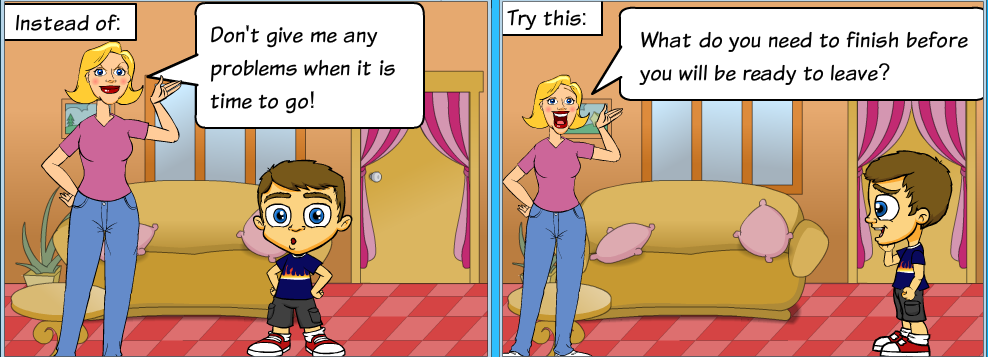 When my kids were little and I first read the book “Raising Your Spirited Child” by Mary Sheedy Kurcinka, I wanted to cry in relief. All 4 of my kids are introverted, 2 are pretty sensitive, 1 was extremely persistent. When Kurcinka described each of the temperaments it was if she was writing about at least one of my kids. When I read the chapter on the temperamental trait of “Adaptability” I felt as if she was living in my house.
When my kids were little and I first read the book “Raising Your Spirited Child” by Mary Sheedy Kurcinka, I wanted to cry in relief. All 4 of my kids are introverted, 2 are pretty sensitive, 1 was extremely persistent. When Kurcinka described each of the temperaments it was if she was writing about at least one of my kids. When I read the chapter on the temperamental trait of “Adaptability” I felt as if she was living in my house.
Anytime my family had to transition from one activity to another, or as Kurcinka says, “adapt”, it was rough. From play time to bath time, from getting dressed to brushing teeth, from getting into the car to getting out of the car, it was not fun. It did not help that I had problems “adapting” too.
Most young kids have a tough time with transitions or adaptability. This trait can also contribute to parent’s feeling that their child is “stubborn” or as we learned in a previous article “persistent.” In this post (as in our previous posts where we spoke about the different temperamental traits of introversion, extroversion, intensity, persistence and perceptiveness, and how to manage them), we will talk about the best strategies to deal with the temperamental trait of adaptability.
ADAPTABILITY
(Sheedy Kurcinka, 2006)
Adaptability is the ability to make smooth transitions. As we mentioned above, some children and adults cannot move from one activity to another. Change is very difficult for them. They have trouble shifting gears. It can be exhausting for parents and kids too.
In “The Explosive Child,” Greene (2005) refers to the inability to adapt as difficulties in the domains of flexibility and frustration tolerance. It is a major cause of tantrums and explosive behavior: ”An explosive outburst like other forms of maladaptive behavior occurs when the cognitive demands being placed upon a person outstrip that person’s capacity to respond adaptively.”
“A substantial number of them (the unlucky ones) explode, the criers are the lucky ones because we adults tend to take things far less personally and respond far more empathetically to children who cry than we do to children who explode, even though the two behaviors emanate from the same source.”
It is tough to manage life with children who have difficulty adapting, especially nowadays when we always seem to be going somewhere. But, these children teach you to be organized and plan ahead. They like routines and can stick for a long time to one task.
We all know adults like this. These are the planners, the well organized, the people who you want in your carpool group.
The triggers for bad behavior in this domain are:
• Being rushed
• Surprises
• Change of plans
We can help children managing their feelings by giving them words to describe themselves:
• “You don’t like change.”
• “You like to be organized.”
• “You need to know what to expect.”
• “You like routines and plans.”
It is helpful if we identify transitions and use the word “transition” to describe to our kids what is happening. We can also train them to look for transition times.
Kids need their feelings affirmed while they are moving through a transition:
“Rushing is stressful for you.”
“You weren’t expecting that.”
“Surprises are too much.”
“It is hard to leave.”
To help your kids cooperate you can:
• Allow extra time for transitions
• Establish routines, avoid surprises
• Give 5-10 minute warnings
• Limit transitions and over scheduling
• Help children refocus on their next activity
• Younger children need a concrete idea of time.
• Use Imagination – “Let’s pretend we are airplanes and it is time for take off.”
Problem Solving with kids is also helpful:
“You thought I was going to take you and I am only taking Jason, what could we do to make you feel better?”
“Is there something you could take with you to help you?”
“What do you need to finish before you are ready to leave?”
“How many minutes do you need to finish what you need to do?”
These kids need to be praised every time they move through a transition successfully:
“You came right when I called even though you were in the middle of your favorite game.”
on tape with you and that really helped.”
“Mom told me you went on 3 errands with her, the bakery, the shoe store and the gas station; you had your book
These children also need to be freed from the following negative roles:
Stubborn/Stable
Impossible/Likes routines
Bullish/Focused
If you the parent is slow to adapt:
• Schedule enough time to regroup between errands and activities
• Plan ahead
• Laugh at yourself
• Talk yourself through transitions
Stay tuned for our next post on the temperamental trait of “Regularity!”
References:
Sheedy Kurcinka, M. (2003). Raising Your Spirited Child Workbook. NY. Harper Collins.
Sheedy Kurcinka, M. (2006). Raising Your Spirited Child. NY. Harper Collins.
Faber, A., Mazlish, E. (1999). How To Talk So Kids Will Listen. NY: Harper Collins.
